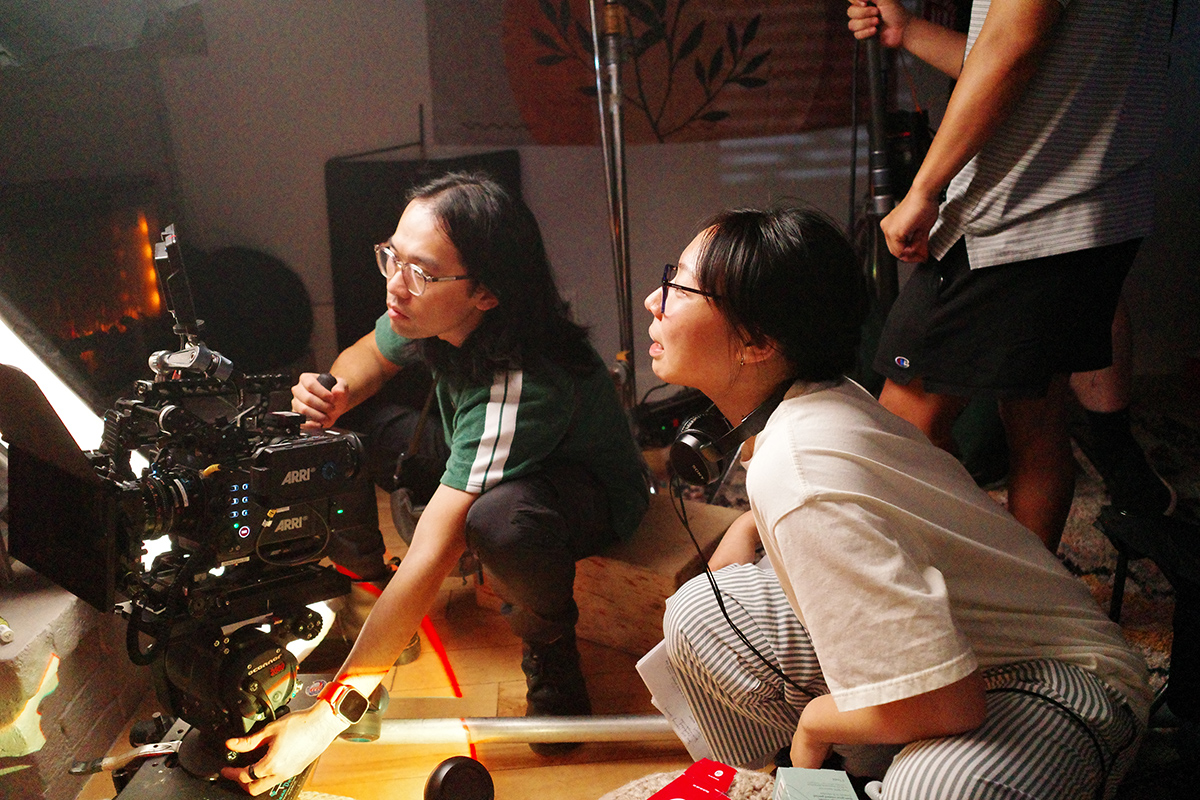At the Toronto International Film Festival, a small sex comedy slipped into the lineup and caught people off guard. It was called Should We Do It?, and in it, a college student named Lily tries to lose her virginity with the help of internet tips, a practiced persona, and a lot of forced confidence. The seduction falls apart somewhat immediately. What’s left is two young people, fumbling, laughing, and sharing their truth.
Yuqi Sun, director of the movie is a comedy filmmaker and editor whose work is less about delivering punchlines than about exposing the awkward pauses before them. Her films turn the mere humiliations of intimacy into moments of humour, and they carry the kind of slick honesty that makes audiences laugh first and recognize themselves second.
It should be noted that Sun didn’t start with sex comedies. She first explored family dramas and comedies rooted in Asian family life–films like Renew, I Gaslight My Mom, and Marry. Those shorts established her tone: humor grounded in emotional depth, with an eye on the tension between tradition and individuality.
With Should We Do It?, she moved into new territory. Lily, the film’s protagonist, sets the mood with candles and fabricated stories, pretending to be a version of herself she thinks Andy–the cute guy she met at a party–will like. Andy, patient but amused, plays along. When the truth finally spills out–she’s never done this before–he doesn’t pull away. Instead, he admits his own story of fumbling through a first time. The pressure breaks. The comedy takes over. They laugh.

The setup could have gone broad, but Sun doesn’t deal in cheap gags. She’s interested in the way people try, fail, and then accidentally succeed once they stop performing. Timing matters–every pause, every glance–and her background as an editor shows. The rhythm of the film lands somewhere between cringe and release, an awkwardness that feels like real life.
In her director’s statement, Sun admits she overthinks love and relationships. She describes nights spent scrolling through internet advice, drowning in contradictions about how to text, how to act, how to present yourself. Comedy becomes her way of cutting through the messy noise we all know about. She points out the absurdity of posing as another just to win approval, while also admitting she’s done the same.
The film also digs into bigger cultural pressures. Casual sex, Sun says, is complicated–hailed as a symbol of freedom but treated almost like some sort of a criteria for modern adulthood. Virginity, meanwhile, becomes a stigma, something to hide. She’s quite clear about her experiences with that pressure: the feeling that being an “old virgin” meant she had something to prove, or that admitting to inexperience would make her less desirable. What she insists on, through comedy, is that the truth should never be shameful. First times are what they are–messy, awkward, sometimes funny. Hiding that fact only adds to the weight.
That philosophy makes its way into the film’s ending. The seduction act collapses, but the moment becomes real. The two characters, stripped of performance, connect honestly. Sun doesn’t romanticize it. She makes it funny, and in the humor, something warmer appears.
Her influences are easy to spot. She talks about early 2000s rom-coms and K-dramas shaping her sensibility–the heightened romance, the sense of fun. But where those films smoothed over awkwardness with glossy cuts, Sun leans into it. She allows the important silence sit, lets characters stumble, and truly trusts the audience to laugh with recognition.
What’s impressive is how consistent Sun’s voice has been so far, even as her core subject matter has moved and shifted. Whether she’s examining familial themes and dynamics or the culture around hookup sex, she returns to the same question: how do people perform for each other, and what happens when that performance breaks down? In her world, the breaking point is always the funny part, because that’s when people stop faking and start being human.
Should We Do It? shows that comedy doesn’t have to flatten intimacy into nothing–it can open it up. It also shows Sun as part of a new wave of filmmakers who see humor not as a distraction, but as a tool. For Sun, comedy isn’t about being clever. It’s about being human–and that’s what makes it work.

